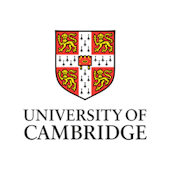Biography. Duncan Odom was an undergraduate student at New College of Florida, and obtained his PhD in Inorganic Chemistry from the California Institute of Technology. He was a postdoctoral fellow at the Whitehead Institute / MIT between 2001 and 2006, developing novel genomics tools to explore transcription factor binding in eukaryotes. He established his independent laboratory at the University of Cambridge’s Cancer Research UK-Cambridge Institute in 2006. In 2019, his laboratory moved to the DKFZ in Heidelberg, Germany.
Science. Duncan’s ongoing research focuses on the extensive and rapid turn-over of tissue-specific transcription factor binding, insulator elements, polymerase occupancies, and enhancer activities across mammals – as well as the mechanisms underlying this regulatory plasticity. It had been widely assumed that among mammals, functional regulatory elements would be conserved, and vice versa. His laboratory has shown the unexpected impact that active repeat sequence expansions have had in remodelling the CTCF-controlled insulator repetoire among diverse mammals. To demonstrate that genetic sequences were the major determinant of transcription and transcriptional regulation, the Odom lab have re-purposed a fascinating aneuploidy mouse model of Down syndrome (previously developed by collaborators) that carries an almost complete copy of human chromosome 21. Profiling the functional behavior of a human chromosome in a mouse nucleus provided an elegant and powerful demonstration that cis-acting sequences have a greater impact than trans influences on transcription factor binding, chromatin state, and gene expression. Recently, his laboratory has begun exploiting single-cell RNA-sequencing and large-scale whole genome sequencing to understand molecular and phenotypic evolution.
Outreach. Duncan Odom is passionate about public outreach, and he hosted a radio show for almost 2 years in Cambridge interviewing local scientists. You can find episodes here:
https://www.mixcloud.com/duncan_odom/
Professional development. Duncan has published two commentaries in Genome Biology about how to choose laboratories for your graduate (PhD) and post-graduate (postdoc) training. You can find these articles here:
https://genomebiology.biomedcentral.com/articles/10.1186/gb-2013-14-4-114
https://genomebiology.biomedcentral.com/articles/10.1186/gb4163
Experience
-
–presentDirector of Research in Evolution and Cancer, University of Cambridge
Education
-
2001California Institute of Technology, Chemistry
- Article Feed
- Joined


